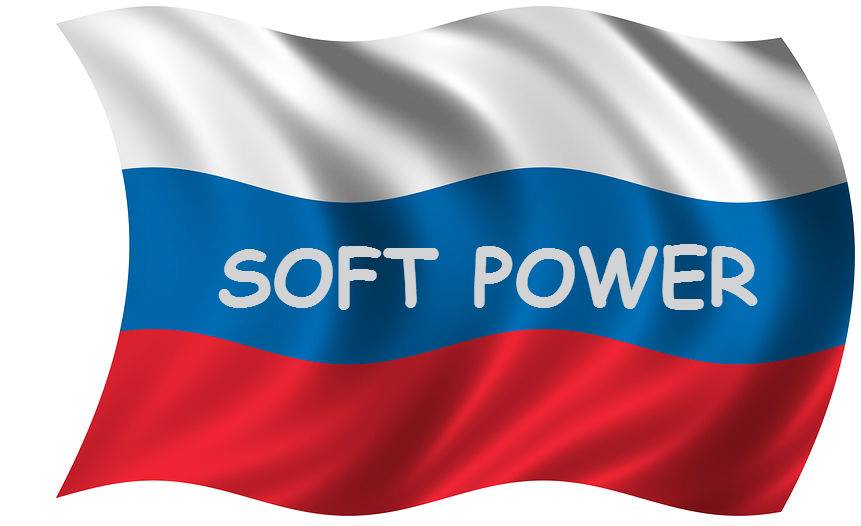


 Author: Giorgi Lomtadze
Author: Giorgi Lomtadze
Russian Propaganda is still a prominent topic in Georgia as well as on the international scene. The eminence is all the more striking as Russian interference in US elections, which most probably had an influence on election results, was confirmed. European countries now fully understand the threats of Russian information operations and are trying to take appropriate measures against them.
Strengthening of Russian soft power and propaganda schemes in Georgia has been discussed for several years now. State institutions and different groups are starting to counter disinformation efforts. Propaganda in Georgia is a mix of soft and hard power tactics, something we have discussed extensively in the paper “Kremlin’s Information War: Why Georgia Should Develop State Policy on Countering Propaganda”. Nevertheless, it is interesting to see what changed in Kremlin propaganda over the years and what we can expect in the future.
Russia’s Soft and Hard Power in Georgia
Russian soft power narrative has been stable in Georgia. Majority of the soft power efforts fall within two categories – 1. Georgia’s cultural (values and practices) and historic ties with Russia and 2. Dialectics of western political values vs. Russian “realpolitik” approach.
Religious beliefs and cultural ties is one of the most efficient tools in Russian propaganda arsenal, as Georgia’s society is religious and can easily be influenced by main trends/thoughts in religious circles. Russia capitalizes on this particularity of the Georgian society and tries to portray the West as the propagator of sinful “liberal” ideology, whereas presents Russia as the defender of “traditional Christian” values.
With the recent state programs, which involve Georgian high clergy visits to EU headquarters and their meetings with EU officials as well as NATO headquarters/officials, negative narratives from the church towards the west decreased significantly, however there are cases when certain groups still actively spread propaganda against western countries and institutions (latest example being the opposition to the Pope’s visit in Georgia). Therefore, cultural narrative is still strong and plays an important role in Russia’s propaganda strategy in Georgia.
Foreign policy narrative has been changing over time and is more reactive in Georgia. Initial focus during 2008-2012 was more on building apathy and feeling of disappointment towards western institutions. NATO membership and cooperation was presented as futile and worthless. EU-Georgia relations were being shown as useless.
With the EU-Georgia relations becoming more fruitful (Association Agreement, Visa-liberalization) attention switched to cultural aspects of EU integration. Current EU problems (Brexit, Polish government’s opposition to EU policies, immigration crisis, Greece economic crisis etc.) are used to label EU as a failing project, which lacks unity and has no future. As for NATO, one constant narrative is how impossible and unlikely it is for Georgia to become a member of NATO and how dangerous this endeavor is. This narrative was building slowly and affects the public rather efficiently.
Another particularity is that after Crimea and Russia’s intervention in Syria, NATO is being portrayed as a loser and a static military group, whereas Russia’s resolve and direct actions are shown as a sign of Russia’s dominance over the military alliance. Recently more focus is made on comparing NATO actions in different conflicts and Russia’s military actions (Serbia vs. Ukraine, US interventions in the Middle-East, Libya vs. Syria etc.)
Hard power efforts are used to amplify the soft power efforts, by creating the environment full of fear and anxiety. “Borderization” and military build-up near the occupation line is always a signal for Georgia that Russia is never hesitant to use military force in case of necessity.
Additionally, agreements with the occupied territories prove Russia’s superiority vis-à-vis the international system and international laws.Russia’s foreign interventions are also used as a propaganda tool – Crimea and Donbass are used as a sign of Russia’s military strength and resolve, whereas its Syria engagement gave propagandists ground to favor Russia as a military strongman for security and anti-terrorist activities.
Where to expect Propaganda?
Current developments determine Russia’s focus and most probable attack will be on the benefits of visa-liberalization with the EU. Efforts will be made to downplay the benefits and portray any minor issue as acts directed against Georgia (for instance readmission of Georgian nationals). Such a recent case was misinterpreting statement made by Austrian Minister of Foreign Affairs, where building asylum centers for Syrian refugees in Georgia were tied to visa-liberalization.
Value-based propaganda is still active, much less than during the parliamentary election cycle, however recent sputnik and several propaganda website efforts are spreading the old but revised narrative of western decadence. Therefore, due attention should be paid to anti-western propaganda efforts for the upcoming local self-government elections.
Latest target will definitely be the European Court of Human Rights and any western institution that expressed concerns over Rustavi2 case. Non-governmental sector will still be labeled as the “fifth column” and propaganda attacks on CSOs is to be expected.
Of course, it is relatively difficult to measure the effects of Russian propaganda in Georgia. However, the fact that Russia has a mixed strategy of soft/hard power tactics, makes Georgian society vulnerable to disinformation efforts. We should never underestimate Russian propaganda, as the way it can affect the masses is unpredictable. As Georgia’s capacity to restrain Russia’s hard power is weak, we believe it is necessary to proactively counter Russia’s soft power activities. European countries are already starting, and Georgia should also concentrate its capabilities (security sector, political figures, ministries, the media, CSOs and academic circles), in order to be ready for potential propaganda narratives.
*Correction: 21 March 2017
An earlier version of the blog misstated that the statement of the Dutch Minister of Foreign Affairs was misinterpreted. It was the statement made by the Minister of Foreign Affairs of Austria.